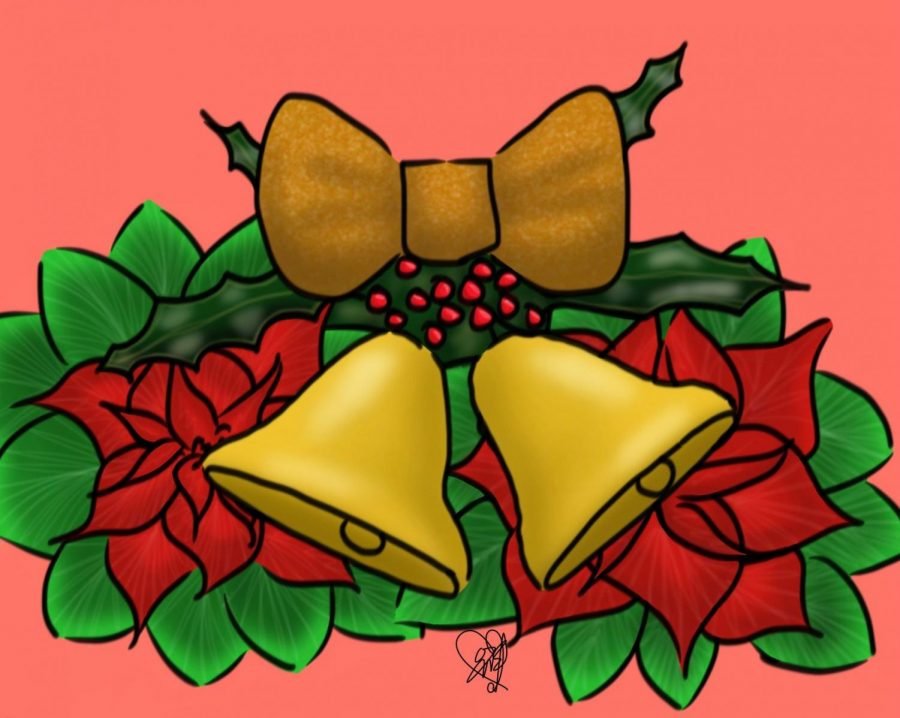Winter Celebrations Across MHS And The World
December 22, 2020
Since the beginning of time, cultures all around the world have created and celebrated countless traditions during the cold months of the year. Many such customs are ancient and have been practiced for millennia in their respective regions. Other celebrations are contemporary ways of defining what’s important during the holiday season. Minnetonka High School is no different, and its students make up a diverse group of people who celebrate many different cultural traditions during the holiday season.
MHS’ Global Cultures Club (GCC) is a student organization that highlights these diverse traditions.
“Each year we’ve had different speakers.” said Andrea Lopezmalo, one of the three leaders of Global Cultures Club. “Students usually present about their culture and, more specifically, what their culture does over the holidays.”
The GCC has enjoyed presentations on Chinese New Year, different Christmas celebrations and even Mexican Posadas. Student presenters educate their peers on their personal traditions and attest to the diversity within MHS. However, many Minnetonka students are still unaware of the celebrations of other cultures.
A prominent eastern tradition, Chinese New Year celebrates the beginning of a new moon. Some of the associated traditions include young people receiving red envelopes filled with money. The New Year will begin on February 12 this year, and preparations begin on February 4.
Hanukkah, a Jewish tradition, is an eight day celebration of “the rededication of the Second Temple in Jerusalem,” explained David Olivar with USA Today.
Traditions include the lighting of the menorah, eating traditional foods such as latkes, playing games, and giving gifts.
Kwanzaa is an African American holiday, celebrated from December 26 to January 1.
It was founded by Dr. Maulana Karenga to “celebrat[e] family, community, and culture” as well as “joint values and practices of continental African and African American culture,” according to the official Kwanzaa website.
Christmas is celebrated on December 25th, celebrates the birth of Jesus, and has many different traditions, like exchanging gifts, attending church worship services on Christmas, and decorating a Christmas tree. Orthodox Christmas occurs on January 7 and also celebrates the birth of Jesus, but includes more specific traditions.
Alexandra Zedania, Class of ‘23, celebrates Orthodox Christmas with her family.
She described the holiday as similar to Christmas, “except […] more so on the basis of religious beliefs and practice. It also has many other customs that can vary from culture to culture.”
Zedania’s family tradition includes “prep[ping] by having sweets and a huge bowl of sugar, some cotton branches and fruits and money. […] When the clock strikes 12, we all have to touch the bowl, and in our culture it signifies good luck and good wisdom for the new year to come as well as prosperity, success, well-being, and peace.”
This year, Zedania and her family will be unable to attend a church service, which normally occurs at midnight on Christmas Eve. There, they pray together and for each other every year.
Learning about other cultures and their celebrations and traditions has its benefits. Cultural diversity is important everywhere and helps people understand others around them, as well as grows more acceptance and empathy toward others. It promotes understanding and respect, which is especially important to learn in a school setting full of varied cultural backgrounds.
“It’s always important to learn about different cultures [and] learn about the world around you […] especially because we have students from all over the world,” Lopezmalo said.
Lopezmalo and Zedania have both benefited from learning about other cultures.
Lopezmalo sid that being a leader of GCC has “made [her] more broad-minded.” She also said that it has also shown her how diverse MHS is and that “it made [her] want to keep learning about different cultures.”
Zedania says that being in GCC has “really educated [her] and many other students about the way that other people embrace their own identity culturally.” She said others can benefit from learning about cultures the way she has and that doing so “promotes an aspect of acceptance” and “spark[s] connections” between students.
“Not a lot of people realize how diverse our school really is unless they’re involved in an organization like Global Cultures Club,” Lopezmalo added. If students at MHS could learn about other cultural traditions, she said everyone would benefit.
Dr. Lisa D. Belfield from Purdue Global University provides tips for how to support cultural diversity, encouraging people to increase their level of understanding, avoid imposing one’s own values, and to be proactive in listening, accepting, and welcoming people and ideas that are different from their own.
By learning about other cultures, students can become more open to new ideas, more respectful and more accepting of those around them. Establishing a global, open mindset allows students to collaborate and share a more interesting, dynamic environment.






























